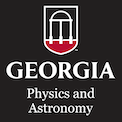Mesenchymal Stem Cells (MSCs) are promising therapeutics for inflammatory diseases and musculoskeletal regeneration; but challenges in identifying highly potent cells and evaluating their in vivo behavior have slowed clinical translation. Dr. Mortensen’s research program develops advanced intravital 2 photon imaging strategies including laser ablation, adaptive optics correction, and super-resolution imaging to probe mesenchymal stem cell (MSC) therapies for inflammation and bone disease and the study of regenerative processes.
Events Calendar View
-
Applied Physics Seminar
Sep 7, 2018
Intravital Imaging of MSCs and Bone Regeneration
-
Observatory Open House
Sep 7, 2018
Observatory Viewing
We will be having another public viewing on September 7, 2018.
If the skies are clear, we will be looking at Jupiter and Saturn.
Because of the limited space in the dome, you must have a reservation to come to this showing. We will begin taking reservations for this viewing on Tuesday, August 14th at 12:00pm. Click here to make a reservation.The observatory is located at the top of the Physics building. To get to the observatory take the elevator to the 4th floor. A guide will meet you on the 4th floor and direct your group to the stairway that leads to the observatory. As the weather can be unpredictable, we might not know whether a viewing will be possible until shortly before the event begins.
If you need more information please call 706-542-2485.
-
CSP Lunch Seminar
Sep 11, 2018
Properties of Crambin Homologues in the H0P Lattice Model
-
Applied Physics Seminar
Sep 14, 2018
Mechanisms Underlying Highly Efficient Solar Energy Conversion in Photosynthetic Organisms
In photosynthetic organisms light energy drives electrons from a donor chlorophyll species via a series of acceptors across a biological membrane. This light-induced electron transfer process is remarkably efficient, indicating a near complete inhibition of unproductive charge recombination reactions. Unproductive charge recombination reactions can be inhibited if they occur in the, so-called, inverted region. However, inverted region electron transfer has never been demonstrated in any native photosynthetic system.
Here I will describe our recent studies using time-resolved visible and infrared (FTIR) spectroscopy to study solar energy conversion processes in native and (cofactor) modified photosystem I photosynthetic reaction centers. From these studies I will show that unproductive charge recombination in native photosystem I does occur in the inverted region.
Computational modeling of light-induced electron transfer processes in photosystem I indicate a decrease in photosynthetic quantum efficiency, from 98% to below 72%, if the unproductive charge recombination does not occur in the inverted region. Inverted region electron transfer is therefore shown to be an important mechanism driving the efficient solar energy conversion process in photosystem I.
The unproductive charge recombination reactions do not occur in the inverted-region in other photosystems, such as purple bacterial reaction centers. Photosystem I is highly reducing (compared to any other photosystem), and it is likely because of the highly reducing nature of photosystem I, and the energetic requirements placed on the pigments to operate in such a regime, that the inverted-region electron transfer mechanism becomes important.
-
Departmental Colloquium
Sep 20, 2018
Probing the Quark Gluon Plasma
In normal nuclear matter, quarks and gluons are confined within particles such as protons. However, under extreme temperatures and densities, quarks and gluons may behave as free particles in a state known as the Quark Gluon Plasma (QGP). Such extreme conditions existed immediately after the Big Bang and can be recreated in high energy collisions of heavy nuclei at the Relativistic Heavy Ion Collider (RHIC) at Brookhaven National Lab in New York and the Large Hadron Collider (LHC) at CERN in Switzerland. The properties of the QGP can be studied by colliding heavy ions such as gold and lead at relativistic speeds and comparing measurements in such events to those in proton-proton collisions. In addition to bulk properties such as temperature and flow, high momentum particles produced in the early stages of the collisions can serve as probes of the QGP. Quantifying the properties of the QGP enhances our understanding of Quantum Chromodynamics, the theory of the strong force which binds the nucleus together.
-
CSP Lunch Seminar
Sep 25, 2018
Information Security for the UGA network
Page 84 of 121, showing 6 records out of 723 total, starting on record 499, ending on 504


